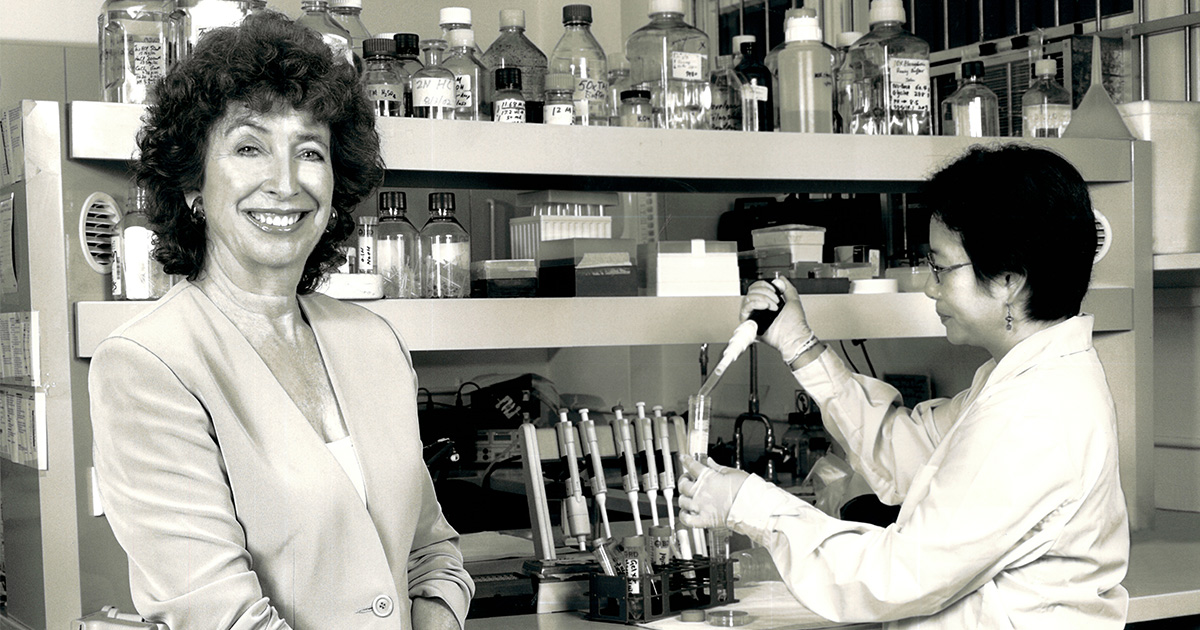The Woolcock Institute of Medical Research

Quantum leap for lab research
Our move to Glebe in 2007 meant state-of the-art facilities for the Woolcock’s lab-based researchers that opened up a world of research possibilities.
Professor Emerita Judy Black was Research Leader of the Woolcock’s Cells group in 2006. She and her colleagues at the time occupied a lab in the department of Pharmacology on the University of Sydney campus.
“We were in a building called the New Medical School which was by no means new. We were in the basement and we shared the space with every type of vermin you could imagine. It was embarrassing – when you’re doing cell cultures, you don’t want contaminants around and we had rats and cockroaches. But we made do. We did what we could with what we had. It was amazing what we produced out of that. Looking back it was a nightmare but we got through it.”
Getting together however
Professor Black acknowledges that none of the Woolcock’s other research groups had marvellous facilities at the time either. But there was a spirit of inquiry and collaboration then, as now, that drove them all to ask and answer important research questions. Researchers would get together on a Friday morning in the old nurses’ quarters of Royal Prince Alfred Hospital – “when we could get away from our labs or offices” – to share information about their work and swap ideas.
“Ann [Woolcock] was really good at collaboration. She could spot someone from 50 miles off and see how they could make a good fit and expand upon the research of other groups.”
“I’m proud of what we achieved during that time. We produced work that got published by doing experiments in very difficult circumstances. The Cells group graduated a number of PhD students and we produced two very talented post-doctoral fellows – Janette Burgess (a Rosalind Franklin fellow and now Professor at the University of Groningen in the Netherlands) and Brian Oliver (the current Research Leader of the Woolcock’s Respiratory Cellular and Molecular Biology group and Distinguished Professor at the University of Technology Sydney).”
Built for purpose
When she was told that the Woolcock’s move to Glebe in 2007 would mean new lab space, built under her direction, to her design, Professor Black jumped at the opportunity.
“The move to Glebe meant we had state-of-the-art facilities – deep freezers to freeze our cultures, proper equipment to do PCR tests, proper cell culture facilities, storage for our samples, containers of liquid nitrogen to store our cell lines. And we could then share those cell lines with other researchers – our collection of lung cells was famous internationally.”
The Cells group very quickly grew to 25 people, with students attracted by the growing reputation of the Woolcock as a leader in respiratory research and no longer deterred by rats in the corridors. New areas of study opened up, through collaborations facilitated by Ann Woolcock between basic scientists, other researchers and clinicians associated with the Woolcock.
Important papers were published in journals such as The Lancet showing that there are inherent abnormalities in the lungs of people with asthma and confirming through cellular work that the pharmacological reaction produced by combination inhalers (containing a steroid and beta-agonist) resulted in quicker and better results for people with asthma.
Want to stay up to date with our research on sleep and respiratory conditions?
Sign up to our monthly newsletter
Cellular contributions
“We’d always been able to exchange ideas and share research with other Woolcock researchers at the Friday seminars but at Glebe that was happening in the lifts, the tea rooms, everywhere and every day. It was inevitable that that would lead to more collaboration and cross-pollination.”
“We made it our job to show researchers how important our cellular and molecular work was to their research. We put it in a framework that they could understand.”
That continues today with Judy’s “very talented post doc” Brian Oliver – “he has always been so full of ideas, enthusiasm and a can-do attitude” – now leading the Respiratory Cellular and Molecular Biology group, mentoring a new generation of basic scientists and researchers and having those lift and tea room chats that help us answer important research questions.










